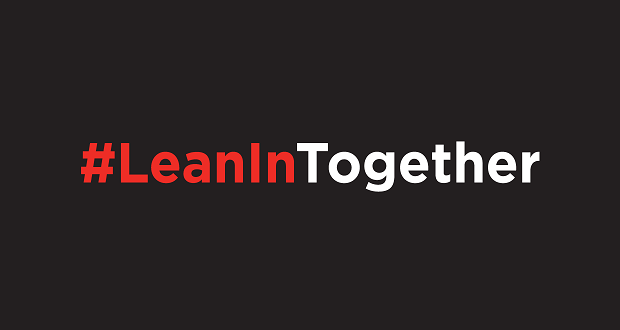
This is the third anniversary of the George Floyd murder, after which countless organizations vowed to address systemic racism. Tragically, the trajectory of events would suggest that not only do we not want to address racism, there are concerted efforts in a number of states to ban DEI programs.
Consider these headlines:
- “Corporate America Is No Longer Pretending to Care About Diversity” (The Nation, March 22, 2023)
- “Workplace Diversity Is Under Attack: Here’s How Employers Should Respond” (Yahoo Finance, March 15, 2023)
- “DEI Initiatives Under Attack by Activists” (Harvard Law School Forum on Corporate Governance, October 7, 2022)
I contend that it is by and large racial diversity efforts under attack because of the recent focus on antiracism. Diversity and inclusion were okay … as long as we did not call out racism. We as a nation are still not willing to address our sordid history with racism, in particular anti-Black racism.
We continue to see that what appeared to be a racial reckoning in 2020 after the murder of George Floyd, Breonna Taylor, and other innocent Black people was just an aberration. Many large companies pledged to develop antiracism strategies and take action to dismantle racist practices in their organizations and in society in general. Little real progress has been made on those commitments as the recent press concludes.
I really thought we were done with having to prove that diversity and inclusion — including racial diversity — are good for the workplace and society. I thought while we agreed the pursuit of inclusion was a good thing, we also mostly agreed that we still had a long way to go. There is a plethora of research that supports diversity and inclusion as positive for organizational outcomes, yet leaders admit they are not doing very well in actualizing their diversity and inclusion goals and are showing less commitment. Thirty-three percent of DEI roles had been eliminated at the end of 2022, compared to 21 percent for non-DEI roles. If all the data supports that diversity and inclusion are good for business, why is there retrenchment and why in some cases is there such a vitriolic outcry against “diversity,” the likes of which we have not seen in recent years? Here is what we are hearing at The Winters Group:
- “We cannot find the time to pursue the goals that we set. Unfortunately, we are backsliding, and we know it.”
- “Our leaders are just too uncomfortable with these conversations, especially about race. Can we talk about diversity more broadly?”
- “We are not ready for the deep systems work that you recommend.”
- “If we focus on racial justice, aren’t we neglecting other marginalized groups?” (This comment came from a board member several months after the board approved a new strategic plan with racial justice at the center.)
And of course, there is the surge in “anti-woke” rhetoric and proposed legislation in 49 states to in some form or fashion curtail talk of race and racism under the guise of banning “harmful” critical race theory (CRT) discussions. Earlier this month, Florida Gov. Ron DeSantis signed a bill banning public colleges and universities from spending money on diversity, equity, and inclusion — calling DEI “discrimination, exclusion and indoctrination.“
As another example that race is at the core of the resistance to diversity efforts, a poll by Civiqs, a nonpartisan online survey firm, showed that white support for the Black Lives Matter movement peaked in June 2020 at 52 percent, a month after Floyd was killed. As of May 12, 2023, the survey results showed the opposite — 52 percent of white Americans oppose the Black Lives Matter movement.
Let’s be clear: It is often not just diversity in general that is under attack, but specifically efforts connected to racial diversity, and in particular efforts to address anti-Black racism. Vida Robertson, the director of the Center for Critical Race Studies at the University of Houston-Downtown, said this about the Civiqs survey findings in an interview with NBC News:
“These polls are quite representative of America’s approach. There is no historical evidence whatsoever that America has ever been interested in Black liberation and building an equitable society. We are simply coming to grips with our romantic ideals that are running up against our political realities. And the fact stands that America has constantly and will constantly struggle with the liberation of Black bodies, because we are endemically a racist society.”
If organizations are serious about making good on their commitments to antiracism, they must be honest about what is stymieing progress. The barrier is coming to terms with the ugly truths that systemic racism is real, current, and continues to tear us apart as a society. This reality has not changed in over 400 years.
I am skeptical that we have the courage or the real interest in addressing the endemic systems that perpetuate the status quo. It is hard work and it can reveal unpleasant truths. I once had a general counsel tell me that his organization did not want to do an equity audit because they were afraid of what they would find and that it would be too hard and cost too much to correct the inequities. If we don’t know about it, we don’t have to address it. But the fact of the matter is, we do know about it and by trying to ban efforts to address racism, we hurt everyone, not just Black people.
Banning diversity efforts means de-emphasizing attention to gender, age, ethnicity, sexual orientation, disabilities, neurodiversity, education, socioeconomic status, size, appearance, and other visible and invisible dimensions that can impact an individual’s quality of life both in and outside the workplace. Banning diversity efforts means that organizations that have benefited from better organizational outcomes will lose that advantage. As chair of online racial justice group Color of Change Heather McGhee points out in her book The Sum of Us: What Racism Costs Everyone and How We Can Prosper Together, policies designed based on a zero-sum mentality end up hurting everyone in the end.


















